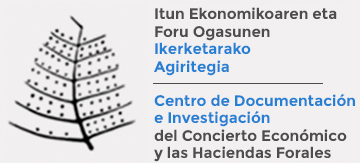The Winter School on Federalism and Governance is a shared cross-border project of the Institute for Comparative Federalism of Eurac Research, the Faculty of Law and the Faculty of Social and Political Sciences of the University of Innsbruck. Since its first edition in 2010, it has taken place under the auspices of the Council of Europe.
The Winter School analyzes the phenomena of federalism, regionalism and multilevel governance from legal and political science perspectives. Each edition focuses on a specific topic, which is then approached in detail by legal scholars, political scientists and practitioners. The next edition of the Winter School will take place in from 3 to 14 February 2025.
The postgraduate programme welcomes an international audience: young researchers and academics, post-docs and post-graduate students, civil servants from a local, regional or national government as well as employees of international organizations or NGOs.
Content and objective
The 2025 Winter School will focus on federalism and the separation of powers. During the training program, participants will analyze the legal and political structures of distribution systems. Starting from an introduction on the origins of the separation of powers, experts will lecture on the vertical and horizontal separation of powers, the involvement of the subnational level as well as the role of constitutional courts and other checks and balances in federal systems. A focus will also be on the question if and how the vertical separation of powers is a useful tool to prevent authoritarianism.
The program will provide insights into different aspects of the separation of powers by offering a wide range of case-studies, such as the federal power-sharing system of the European Union, but also examples from Africa, Asia and North America. Furthermore, topics such as asymmetric federalism and the impact of power-sharing on key policy fields, such as environment, migration, digitalization and health or fiscal relations, will be discussed.
Besides numerous opportunities for discussion with leading experts on multilevel governance throughout the lectures, a variety of interactive sessions will provide the chance to share knowledge and experience. Lectures, workshops, Q&A sessions, and a round table will take into account multilevel systems from different continents.
The Winter School will examine a series of issues:
- How can federalism be used as a tool to divide and share powers?
- What is the role of constitutional courts and other checks and balances for the separation of powers?
- What are the consequences of asymmetries for the separation of powers?
- Can a strict separation of powers be counterproductive in federal systems, and how can shared rule and intergovernmentalism be combined with the separation of powers?
- Does the vertical separation of powers prevent authoritarian systems?
- How do power relations change during emergencies?
- How does the separation of powers impact on policy fields such as migration, environment, fiscal relations and digitalization influenced by separation of powers?
- What lessons can be learned from comparative practice?
The 2025 Winter School examines these and other topics by combining theoretical expertise and relevant case studies. As such, the program is a unique opportunity for young academics, postgraduate students, civil servants and practitioners to receive enhanced training on the theoretical and practical aspects of federalism and multilevel governance.
For further information visit Eurac.



